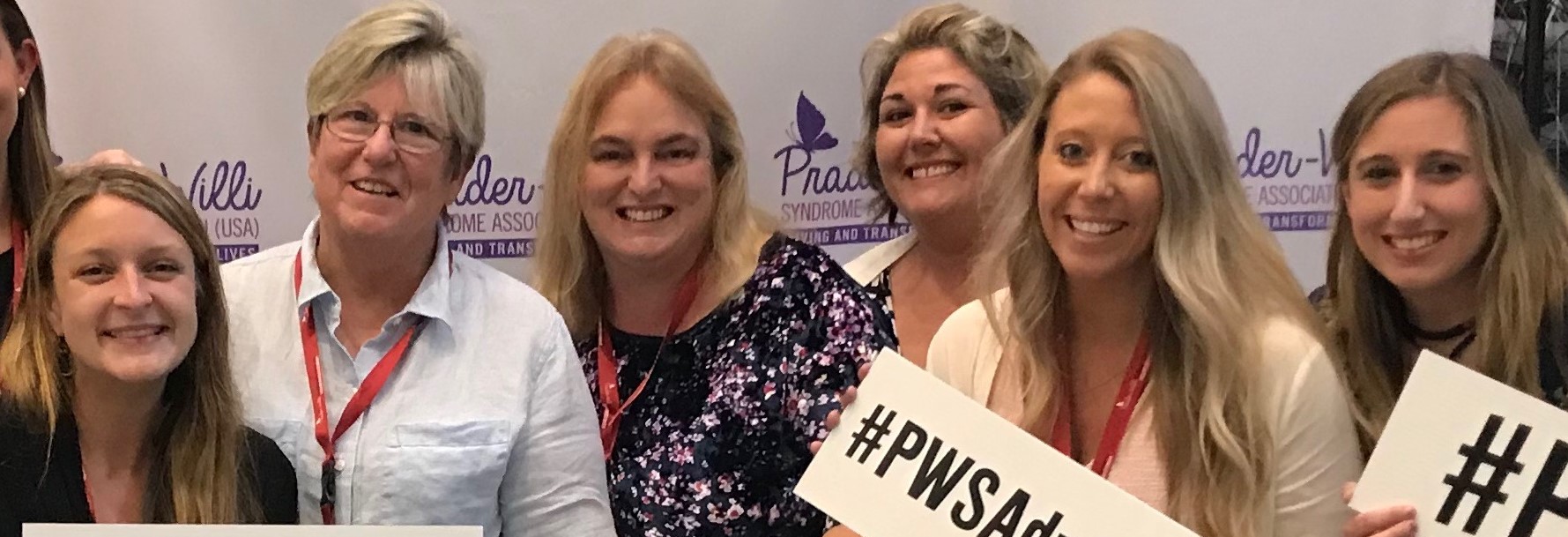Tip of the Week: PWS Awareness (Prader-Willi tips ‘Week 3’)
May 22, 2020

In honor of Prader-Willi Syndrome Awareness Month, Latham Centers shares a “Tip of the Day” on social media throughout the month of May. Here are this week’s tips:
-
Many families are physically isolated from other families with children diagnosed with PWS, but social media allows for virtual connections that can be invaluable. With some monitoring, you can easily help your child connect with other children with the diagnosis. These connections allow them to not only feel less alone but open the door to peer support in times of need.
-
Individuals with PWS typically have lighter skin than the rest of their family due to a decrease in melatonin. Be very mindful of sunburns year-round.
-
People with PWS have very slow metabolisms and require far fewer calories each day than the typical person. Make each calorie count and avoid empty calories like sugary drinks and snacks.
-
Here is a PWS resource for people around the world: https://www.ipwso.org/. Patrice Carroll, Latham’s Director of PWS Services, was recently nominated and elected to join the International Prader-Willi Syndrome Organization as a member of the Caregivers Board of Directors. The Professional Providers and Caregivers Board was established by IPWSO to provide support, information, and to share international knowledge among professional service providers throughout the world. Since the meeting of the first International Caregivers Conference in Herne, Germany in 2008, there has been universal support for establishing an international board of providers. The board was created to establish guidelines for best practices among caregivers of individuals with PWS and to provide a forum for providers to discuss specific issues affecting not only the individuals with PWS who reside in residential care, but issues affecting the institutions or community agencies that provide this care.
-
Many people with PWS have challenges with processing speed. Keep instructions short and ask for them to repeat what you just said until you are aware of their ability to process as quickly as you are speaking.
-
Individuals with PWS typically enter puberty later than their typical peers and some never complete the process.
-
Individuals with PWS have low muscle tone. Daily exercise is essential for maintaining the muscle tone that they have, improving stamina, and working toward—or staying at—their goal weight.
Though there are many challenges associated with PWS, there is also an endless list of positives and strengths. We never want to forget the wonderful qualities that our kids have despite some challenges along the way.

Patrice Carroll, Latham Centers’ Director of PWS Services, is world-renowned for her Prader-Willi syndrome expertise. She works with Latham students and residents, their families, and other experts, continuously learning and teaching about PWS best practices. If you have PWS-related questions, we invite you to email TipTopics@LathamCenters.org.
